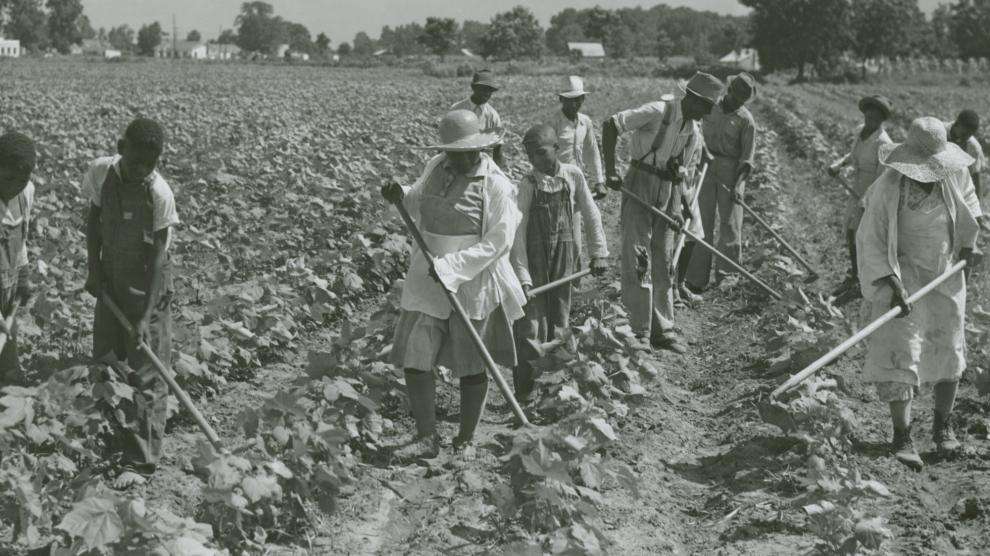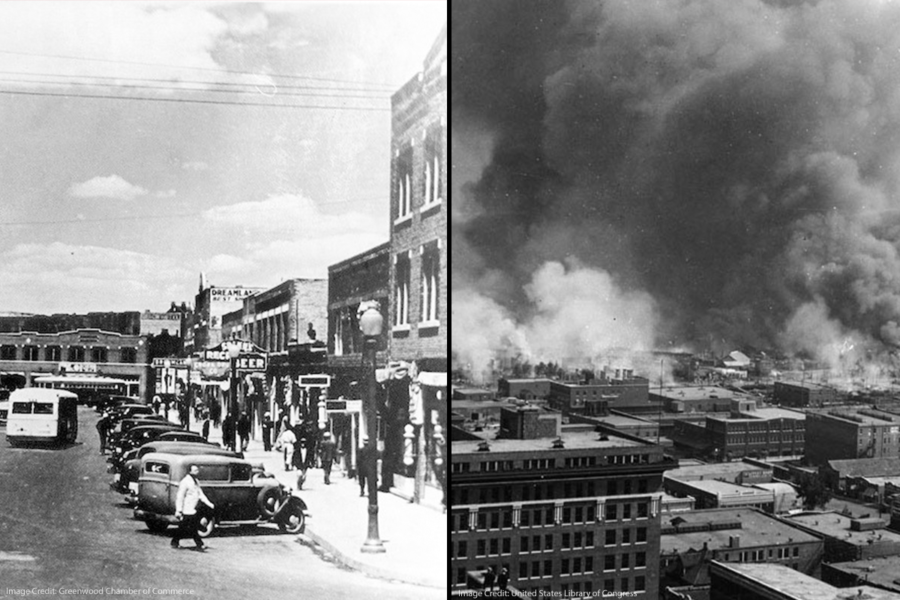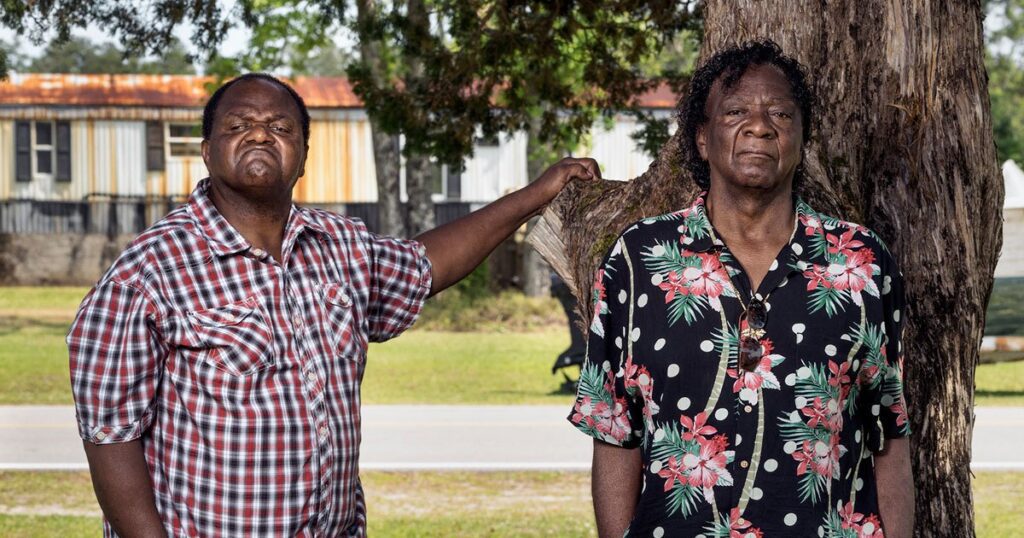Stealing Black Land

Since 1910, African Americans have been stripped of 90% of farmland that was legally their own.
Prologue: 40 Acres and a Mule
They say it happened on January 12, 1865. Emancipation was in the air…four million people newly freed from bondage. In Savannah, Georgia, Union Army General William Tecumseh Sherman met with 20 black ministers to ask them what they needed. “Land!” was their response, “so that we can reap the fruit of our own labor.”
Sherman ordered that 400,000 acres of land formerly held by Confederates be given to freed slaves…a proclamation that became known as “40 acres and a mule.” The following year, Congress passed the Southern Homestead Act, designating 46 million acres of public lands be set aside for Union supporters and freed people.
Slowly but surely, African American families began pinching their pennies to purchase farms in fertile regions along the Southern east coast and Mississippi River. By 1920, Black citizens, who made up 10% of the population totaled 14% of Southern farm owners. In 1920, nearly a million black farmers toiled on 41.4 million acres of land.
Today, only 49,000 remain, making up just 1.4% of farm owners tending 4.7 million acres–a 90% loss.
Two factors are primarily responsible for this “great land robbery:” a violent white backlash to Black land proprietorship and, more relevant today, the tenuous nature of proving ownership of the land. The Reconstruction-era “heirs’ property” is still the leading cause of Black involuntary land loss.

White Supremacist Backlash
At the turn of the 20th century, a white supremacist backlash against Black property owners spread throughout the South. Groups of poor white farmers called whitecaps raided Black homes at night, sometimes assaulting whole families and threatening murder if the Black farmers didn’t vacate their homes and property. The whitecaps kept their word in 1912 in Forsyth County, Georgia, where over a period of two months, white mobs drove out the entire Black population.
“There was this idea that most blacks were lynched because they did something untoward to a young woman,” Ray Winbush of the Institute for Urban Research told an investigative journalist for Pro Publica. “That’s not true. Most black men were lynched between 1890 and 1920 because whites wanted their land.”
“The Worst Problem You’ve Never heard Of”
General Sherman’s and Reconstruction forces’ vision of heirs’ title in securing land ownership for generations of ex-slaves has turned out to be “the worst problem you’ve never heard of,” according to David Dietrich of the American Bar Association. Basically, it makes Black land owners vulnerable to “laws and loopholes that allow speculators and developers to acquire [Black] property.”
It’s not just white villainy. Clearing a title requires a court to track down every living heir and Black families get spread apart and are hard to keep track of. Blacks who were at first denied access to the legal system remained suspicious of Southern courts. Records were not kept. Wills were not written.
“Land Hunger” in Mississippi
Drive along the famous Blues Highway 61 in the Mississippi delta region and you first notice that cotton is no longer king. You can see rich, green soybean fields in neat rows until the end of the rainbow. The farms are huge and the equipment has the shine of corporate America.
It obviously wasn’t always like that. In 1900, black land owners in Tunica County along Highway 61 outnumbered white ones three to one. According to the Department of Agriculture, black farmland in Mississippi totaled 2.2 million acres in 1910, accounting for 14% of all black-owned agriculture land in the country, and the most of any state.
But of course the foothold was tenuous. Farmers need loans for equipment and mortgages, and, well, black men weren’t exactly welcome in the big banks in Jackson or even Clarksdale. Shady loan servicing and loan denial forced many black farmers into foreclosure, or else fraudulently high land assessments led to forbidding tax obligations. As previously noted, limited access to legal services put family claims to the land title in jeopardy. The Atlantic give us a good summary:
Thousands of individual decisions by white people, enabled or motivated by greed, racism, existing laws and market forces, all pushed in a single direction.
The Atlantic
Black folks living in the Mississippi delta region today are almost uprooted from the soil…as land owners. In that same Tunica County, black people make up 77% of the population but own just 6% of the farmland.

Two Brothers Refuse to Leave Their Land in North Carolina
Great reporting by the investigative news organization Pro Publica (and author Lizzie Presser) gives us a perfect example of black land loss and, in this case, two North Carolina brothers who spent eight years in jail for refusing to leave the land that had been owned by their family for generations.
The great grandfather of Melvin Davis and Licurtis Reels purchased 65 acres of marshland along a North Carolina river 100 years ago…the old man was a generation removed from slavery. The old man’s son and the two brothers’ grandfather, Mitchell Reels, was a deacon who held tent revivals along the waterfront. The river was good fishing for shrimp and crabs. The Reels’ land had the only beach in the county that welcomed black families.
Heirs’ Property Stolen
When Mitchell Reels died in 1970, he had one final wish: “Whatever you do, don’t let the white man have the land.” But Mitchell did not leave a will and let the land become “heirs’ property,” in which all family members held a slice of ownership in the land. But what if one family member (in this case, a distant uncle named “Shade”) wanted to sell his share?
In the spring of 2011, the brothers Melvin David and Licurtis Reels found themselves in a courtroom, trying to absorb the shocking realization that, without their knowledge or consent, the waterfront portion of their land had been sold to developers way back in 1982. Uncle Shade had used a legal bag of tricks (the details are in the article) to first establish his connection to the land and then secure his right to sell a portion of it.
Going to Jail
Both brothers had a big stake in their land. Melvin ran a club there and made a good living shrimping on the river. Licurtis spent many years building a house right on the river’s edge. After being warned repeatedly to vacate the land, the brothers intended to argue their case at the 2011 hearing. They had been baptized in that water.
Instead, the judge ordered them sent to jail for civil contempt. The brothers assured their mother Gertrude that they would be home by the afternoon. After all, the brothers hadn’t committed a crime or faced a jury. Even the surprised bailiff, who had never booked anyone for civil contempt, could only produce one set of handcuffs and had to put one cuff on each brother’s wrist.
Melvin Davis and Licurtis Reels spent the next eight years fighting their case from county jail. They became two of the longest serving inmates jailed for civil contempt.

Coda
The brothers have not set foot on the waterfront since being released from lockup. Despite some defiant talk of rebuilding their waterfront houses, Melvin and Licurtis must face the reality that the developers’ ownership is simply impossible to overturn.
That’s the way it is for millions of black farmers who’ve been expelled from their land. The theft of black farmland is a leading cause of the racial disparity of wealth in this country.
Once again, we must count on the young to start making things right for all we have lost. Leah Penniman, co-director of Soul Fire Farm in upper state New York and author of Farming While Black, is focusing on the next generation of black and brown farmers. Soul Fire Farms is part of a coalition of groups “claiming sovereignty and calling for reparations of land resources so we can grow nourishing food and distribute it to our communities.
“I doubt the existing power structure and the existing status quo will go so far,” Penniman remarked. “It would require a fundamental shift in our relationship to the earth.”


















































































































